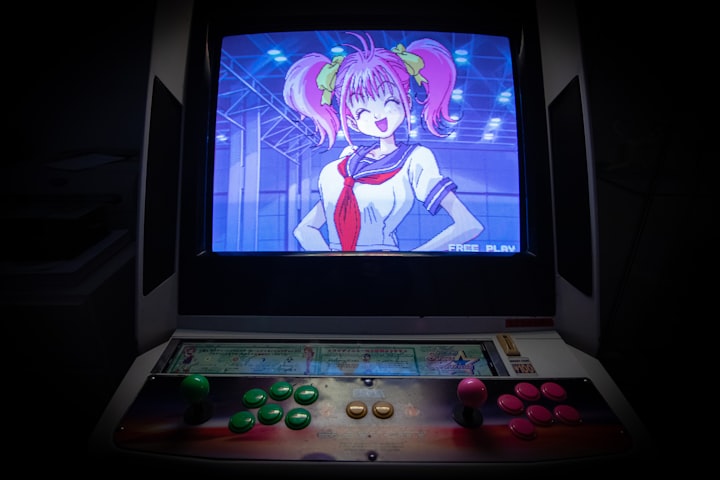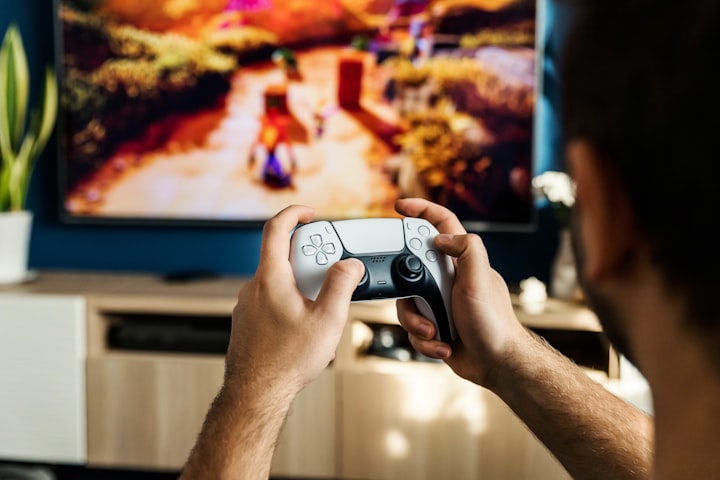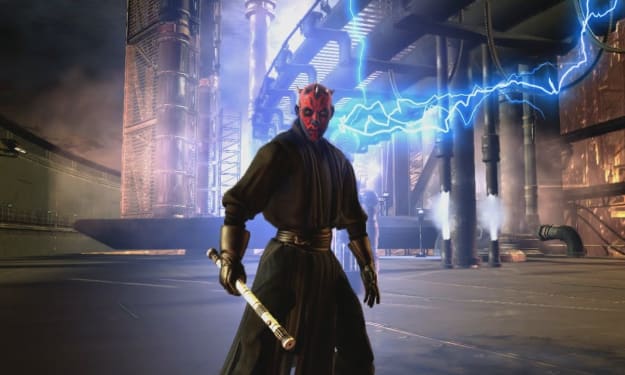The Self and Psychology in Videogames and NFTs
NFTs, Humans, Extended Self, Videogames and Marketing

Even in what we refer to as IRL (in real life), we may not fully comprehend the intricacy of our own selves and identities. We do, however, express our self by extending it to our belongings. Clothing, hobbies, furnishings, and photographs all contribute to our sense of self-identity and help us keep track of it.
But what about right now? When we spend the majority of our time on computers, phones, the internet...and video games. In the digital environment, certain paradigms have evolved to a "extended self," according to Russell Belk.
Videogames are a unique medium in which we may build and retain our identities. Personally, I've played a lot of Skyrim and Elder Scrolls Online, and I'll admit to getting my actual self (a white woman) mixed up with my avatar at times (a male Redguard). I've spent hours playing, not only fighting skeletons and dragons, but also helping him construct his life.
For many gamers, the gaming ecosystem is where they find the majority of their identities. Furthermore, platforms and games allow you to customise your avatars to the nth degree, including adding skins and custom weaponry. With the development of gaming NFTs, this offers up even more options for possession and self.

Embodiment
To a third party, it may appear that there is no way to become connected to something virtual in the same way that we become attached to our physical assets. However, everyone who has played video games for a long time knows that this is not the case.
We do become connected to our virtual belongings, like our characters, weapons, skins, and so on. This is especially true for "younger" generations who have grown up with smart phones, computers, and the internet. Experiencing these items as a part of their expanded self is the same.
According to Belk, several aspects of the identification process are paradoxical. When viewing their avatars from a third-person perspective, for example, gamers are more likely to identify with them (compared to first-person).
As with wearing a mask , we behave differently when we operate an avatar although it is not quite a simple as the shape shifting of the ancient Greek god Proteus (Belk).
As a final embodiment note: these gaming “possessions” allow us to re-identify ourselves thanks to the possibility of creating and/or controlling avatars. They are “me in the game”.
VR may be a nice new-ish re-embodiment field to explore in the future.
The purpose of acquiring armaments in massively multiple online role playing games (MMORPGs) like World of Warcraft is primarily to be more successful in battles in the game and to advance our avatars to higher levels with greater powers. Similarly, the purpose of buying more powerful and expensive cars in games like Gran Turismo is to win races […]. And in virtually all of these online worlds the display of these acquisitions acts as an expression of self[…] (Belk)

Memories and Sharing
Humans have a proclivity to be "at war" with imagined "enemies," as well as to aid others and be empathic.
Collaboration with others has been a free-for-all in online gaming. Our selves-in-character encounter other selves and collaborate to create a journey with the purpose of achieving a goal. Imagine forming guilds, meeting new people in ESO, or participating in a PubG team-vs-team battle.
Furthermore, internet 2.0 allows gamers to discuss their experiences on blogs or forums (think anything Reddit and co.).
As the digital world created by games extends our lives, we can extend this extended self to outside games.
Therefore, forums, blogs, merchandise, and streaming services are created. And we can be immersed — life permitting — in our gaming worlds 24/7.

Will NFTs be the future of gaming personalization?
It is already feasible to enjoy a personalised gaming experience. However, for the time being, most of our personalisation is fungible, since numerous copies of our skins, characters, and other items are held by others.
NFTs are non-fungible tokens by definition, and they have the potential to disrupt the gaming industry in the near future. Through the blockchain, players will be able to access digital products that are unique to them.
NFTs will not allow creators to erase or withdraw them from owners, unlike other virtual "possessions."
For better or for worse this may be the future of gaming, and the way we perceive our extended lives.

Now, to conclude, I'd like to offer a super brief summary.
Gaming allows for new self-identification and extension in the digital world. People feel re-embodied through their avatars and with other players co-construct new worlds and adventures. There are still limitations regarding collecting and ownership, but the advent of NFTs in gaming may change this soon.
Now, excuse me, I have to ride my horse from Solitude to Whiterun. GG.
About the Creator
Reader insights
Nice work
Very well written. Keep up the good work!
Top insights
Excellent storytelling
Original narrative & well developed characters
Expert insights and opinions
Arguments were carefully researched and presented
Heartfelt and relatable
The story invoked strong personal emotions
On-point and relevant
Writing reflected the title & theme







Comments (2)
I don't game a lot, though I do still play when I can. In fact, I still own and play the original Buffy The Vampire Slayer game for X box. I love that game because it takes me to a 'safe place' where I can work on my stress and anger levels. Your article is very insightful.
Great post